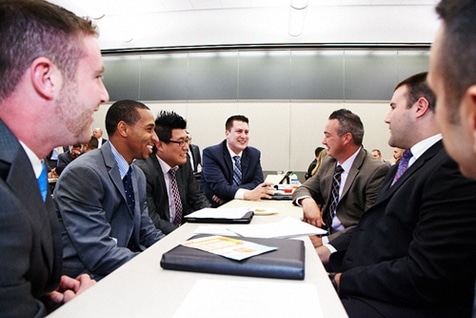Before an employee goes to work – physical, mental and emotional preparedness is a must. Sometimes an employee can go beyond his/her working time just to make sure that by the end of the day all the task and/or projects assigned to him are done. This can be an employee’s daily routine. Work-life balance may go for a toss and in some cases even the time to rest.
A hardworking employee may sound good, but do employers recognise the damage being done to the employees themselves as well as to the business in the long run due to fatigue and stress?
Alsco is pleased to share with you this helpful article by Holistic Services Group (HSG) on how a company leader can recognise the state of their employees (emotional, mental and physical) and how they can have fun and enjoy while working in order to reduce stress.
Factors that Affects Motivation to Work
Anyone with a full-time job, whether it be professional or unskilled, spends most of their waking hours committed to that activity. But just as work affects our lives, so too do we choose which attitude to bring to work.
Lifestyle decisions can alter our health, mood and energy levels, and the structure of the workplace also influences the motivation of those who work there. In many ways, ourselves and our working lives rely on one another.
Money vs Time
We need money to survive, and economics supposes that financial gain is the primary reason we have jobs. While money does loom over many of our heads on a consistent basis, we can look at our hobbies and other achievements in life that are not dependent upon a paycheque and see how those tasks – because they’re driven by enjoyment, achievement, fulfilment, and purpose – tend to be the most productive parts of our lives.
It seems like fun to stick to a favourite pastime for hours, days, and even years if the task demands, whereas most employees around the world struggle mentally to make it to the end of the workday.
Gallup: Worldwide, Only 13% of Employees are Engaged at Work
How can we connect that same sense of purpose that we find in our other passions to our work lives as well?
Economics seems to go out the window when we hear about people accepting a reduction in their income by moving jobs or changing careers to something they enjoy more.
Research shows that if you find yourself less productive than you know you can be, you’re not alone.
Ask yourself:
- Why do I do what I do?
- What inspires me to come to work?
- What motivates me throughout the day?
Your answers may involve money, but they likely also involve people, emotions and accomplishments.
According to psychological science expert Martin E. P. Seligman, the things we are passionate about are activities that we are willing to sacrifice ourselves for. In his words: “you use your highest strengths and talents to belong to and serve something you believe is larger than the self.”
The Difference of Sense of Meaning and Sense of Happiness
Seligman also discusses the differences between a sense of meaning and a sense of happiness – meaning lasts over time, whereas happiness is experienced ‘in’ the moment, making us feel good. Sometimes the relationship is not obvious – for example, thinking about the present moment in time, rather than remembering the past or imagining the future, is associated with less happiness but more meaning.
Full article: The Atlantic Times
This becomes extremely important when we face challenges or setbacks, and the project at hand suddenly seems further from completion or less gratifying than had been expected.
People with a strong sense of meaning are better equipped to deal with these situations, and those who are more focussed on the present moment in time will respond better to demanding tasks.
For managers, CEOs, and other business leaders, this element is crucial.
If workloads are demanding, staff experience stress and expend effort and energy doing their jobs, but they will feel better about it if they can see that they are contributing to something greater than themselves. Having a sense of purpose is not only a powerful predictor of an employee’s productivity, it can unlock creativity.
There are a few aspects to creating an environment where people believe they are making a contribution:
- Have open channels of communication, where everyone can voice concerns and make suggestions.
- Encourage conversations around stress management, resiliency and emotional coping strategies.
- Have policies that encourage work / life balance for your team members, wherever possible.
- Reinforce the shared values that exist within the organisation, and bring your team leaders together to talk about how to embody them.
- Believe in each person’s potential to create positive self-change.
Emotional and Career Growth
Today’s workers might need the wage, but they’re looking for more, and as a business leader you have the chance to provide them with the tools they need to achieve personal growth.
Indeed, employees who feel connected to the team, feel that they’re appreciated and heard, and feel a sense of purpose will show more loyalty to their organisation.
Barry Schwartz, a psychologist working on a book called “Why We Work”, describes a stereotypical situation where a new employee arrives at a company, initially believing in the ethics of the industry and the values of the employer.
But over the next few years, many of these beliefs are lost, replaced by on-the-job experience. The experience helps determine a new set of thoughts and opinions, both positive and negative, about the purpose of employee’s working life.
Article: Rethinking Work by the New York Times
Acknowledge the Employees
We’re likely to bring more creativity to work when we feel that our role in the organisation is contributing towards a greater purpose than just our own financial reward. If business leaders can find a way of communicating with their staff that acknowledges their efforts and the demands they face, the organisation can tap into a powerful determinant of performance, morale and customer service.
Initiatives that succeed in creating a more resilient workplace culture will bring about a lasting change in productivity, team cohesion and problem-solving. Feedback from those who participate in the initiative can also provide a valuable snapshot of morale.
Ideas for boosting resiliency and opening conversations about purpose include:
- Classes
- Workshops
- Consultations
These services can come to your workplace and be held during office hours, encouraging participation and showing the organisation’s support.
Work / life balance can be the theme of a workshop, or bring in an expert to speak with your team in one-to-one consultations.
Resiliency can also be discussed in a workshop, or simple, practical and effective techniques can be taught with a workplace meditation class.
At HSG our mission is to bring:
- Effective learning methods and activities into your office
- Boosting communication
- Increasing productivity
You can support the wellness and happiness of your staff by participating in Workplace Wellness Programs that are designed to support your employees emotionally, mentally, and physically.
Holistic Services Group can turn your wellbeing objectives into a single one-hour workshop, or a comprehensive program of workshops, health classes and incentives – call 1300 889 073.
Alsco would like to thank Stephanie Mialki of Holistic Services Group for sharing this helpful article that can be used as a tool to help employees enjoy their jobs while earning. This article is also a good way to inform CEOs, managers and all the team leaders understand and help the employees maintain their physical, emotional and mental health status.
It is important to maintain a good and healthy relationship with your employees in order for them to stay motivated and work hard. Giving your employees enough time to rest, relax and enjoy will surely benefit both the worker and the company.
Alsco always wants to make sure that every employee is comfortable in their workplaces, even if their job requires them to stand continuously for hours at end. With this, we introduce Alsco’s Anti-Fatigue Mats. Get to know more about this service by calling 1300 659 892 – our representative awaits!
Photo courtesy: Cydcor




